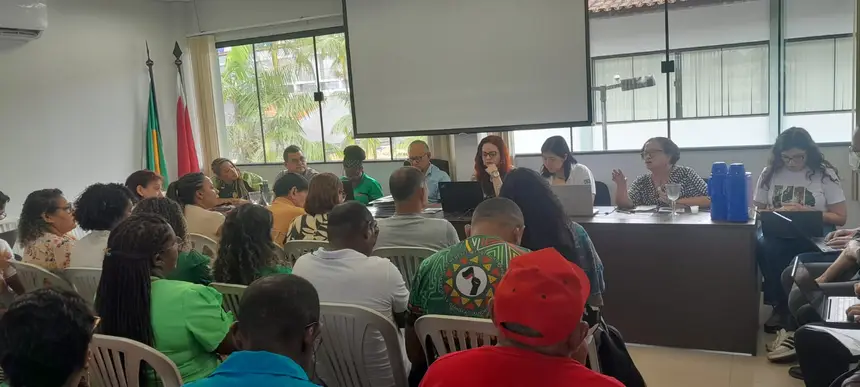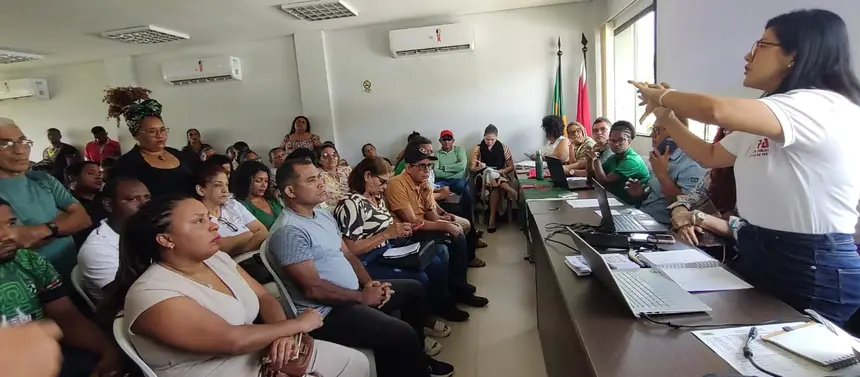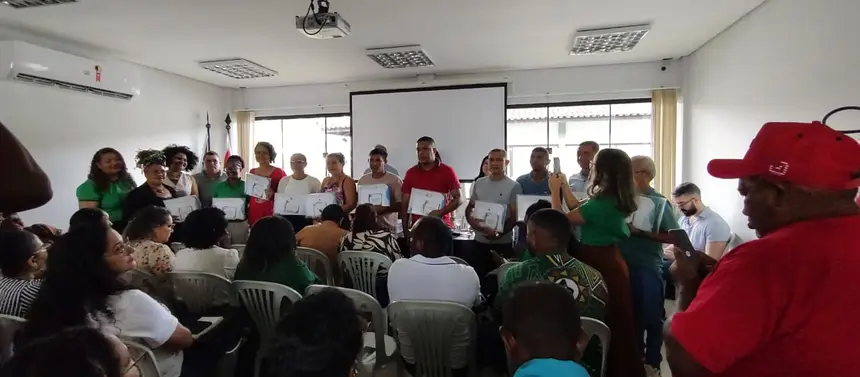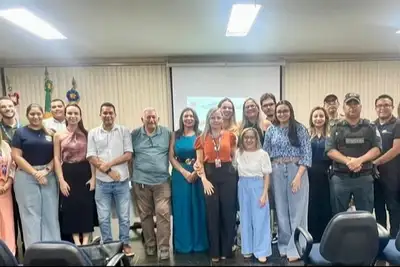State strengthens dialogue on quilombola territorial rights in Pará
Seirdh participates in the Quilombola Table, at the headquarters of Iterpa, discussing with public institutions and community leaders advances in titling and certification, and in public policies
The State Secretariat for Racial Equality and Human Rights (Seirdh) participated, on the morning of this Tuesday (5), in the Quilombola Table, held at the Institute of Lands of Pará (Iterpa), in Belém, with the support of the Public Ministry of the State of Pará (MPPA) and the Coordination of the Associations of the Remaining Quilombola Communities of Pará (Malungu). Representatives from the Court of Justice of the State of Pará (TJ-PA), the Amazon Environmental Research Institute (Ipam), and the Palmares Cultural Foundation, among other institutions that discuss quilombola demands, were also present.
In its 14th edition, the event occurs quarterly, fostering dialogue for the construction of actions recognizing quilombola territorial rights in Pará, whose proposal is the integration of this population with public policies, strengthening, and active listening.

The head of Seirdh, Edilza Fontes, highlighted the actions and policies of the Secretariat aimed at quilombola communities, such as the creation of a specific management to address the subject and participation in the Technical Chamber of the State Secretariat of Education (Seduc), which develops projects for various activities within schools.
Conference - "We are also seeking more selective processes aimed at quilombola teachers, in addition to monitoring the Prior, Free, and Informed Consultations for the creation of the REDD+ Jurisdictional System in Pará made with quilombola communities," she detailed. She also invited everyone to participate in the V State Conference for the Promotion of Racial Equality (Coepir), scheduled for August 20 and 21.
The acting president of Iterpa, Flávio Ricardo Azevedo, emphasized the importance of having agencies like Seirdh at the event, as well as the participation of many quilombola communities. "Having this auditorium full means that this policy is yielding results. I would like to thank Seirdh's presence here, as by working together we can achieve even more. We will move forward. You can hold us accountable, as we are here to be held accountable and provide the necessary responses," he stated.

Titling and certification - The manager also highlighted that Pará is the third state in Brazil in terms of the number of quilombola communities, and the one that grants the most titles. He informed that, still in 2025, the mark of 55 titles delivered to communities in seven years will be reached.
One of these titles will benefit, at the end of August, the community of Nova Betel, in Tomé-Açu, northeastern Pará, which received the news during the event. The president of the Association of Quilombola Farmers of the Quilombola Community Nova Betel (AMAQCNB), Cloves Chermont, said that the community is very concerned about the threat of invaders to their territory and the generation of conflicts.
"We came here to bring some document. We are afraid of invasions, and we are going through many conflict situations. I want to thank the Public Ministry, the Palmares Foundation, Malungu, and all the people who fight for their territory. This is to show that we have to fight for our territory, as the title is possible," he reinforced.
During the discussions, the director of the Department of Protection of Afro-Brazilian Heritage of the Palmares Foundation, Fernanda Thomaz, heard many reports and demands about the difficulties that communities face in obtaining certification. She emphasized that the demand is already known by the Foundation and valued the moment of debate and listening.
"I thank you for the contributions. We are aware of the historical fragilities of this process. Our presence here is to try to make partnerships, enable, and think of a real and faster way for these certifications to be made. Our idea is to leave here with meetings scheduled, so we can think of ways to accelerate the certifications, even to zero," she informed.
Text: Fernanda Graim - Ascom/Seirdh










